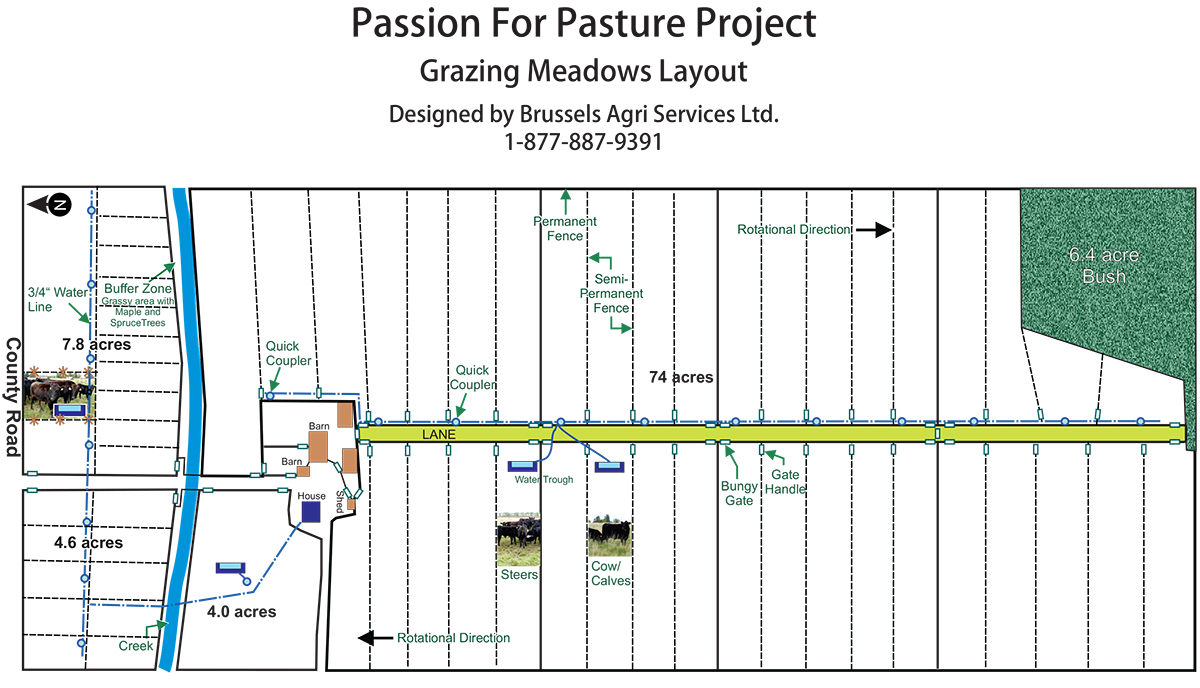About
In 1868, Rob McNaughton purchased this 100 acre farm from the Crown. In 1894 Hugh Lamont Sr. purchased the farm, followed by son Andrew Lamont in 1910. Lloyd Alcock was the owner in 1941, followed by Bertram Hemingway in 1958 and then his son Morris in 1964.
Tim and Donna Prior had rented the house and barns from 1986 up until 1996 when they purchased the 100 acre farm that is now Grazing Meadows Wagyu.
For over 25 years Tim and Donna Prior have been operating Grazing Meadows as a grazing operation while housing cattle in the barns over the winter. Even though Tim was not born into an agricultural family, after taking a summer job on a feedlot Tim was hooked on the agricultural lifestyle. Tim went on to attend agricultural college, met and married his wife Donna and together they purchased the farm that would become Grazing Meadows Wagyu. They also purchased Brussels Agri Services.
Over the next few years, Tim and Donna were blessed with 3 children, Nathan, Taylor and Emily. Grazing Meadows has provided an amazing environment to raise their family to adulthood. With grand children now they are able to share their operation and lifestyle with them also. The Priors are well known and respected in the grazing circles in Ontario and beyond for promoting controlled rotational grazing methods to increase per acre potential plus make their soil healthier. Their grazing operation is a demo farm for rotational grazing techniques, strategies and grazing supply products. Seeing and trialing is believing. Being able to promote quality products that work in the field gains respect and knowledge in the grazing community. This commitment has led the Priors to open their operation to other producers for their annual Pasture Walk and Talk put on by Brussels Agri Services Ltd. This event is attended to by over 400 graziers annually who come to listen to the guest speakers and a tour of the Grazing Meadows operation.
For the first 15 years Tim and Donna had grazed stocker cattle and a small herd of a dozen black angus cows. Then after hearing a couple speakers from Australia speak on Wagyu. The light switch was turned on and the research began. Starting slowing and building over the years they currently have 52 Fullblood Wagyu females to calve out in spring of 2021. They have never regretted the choice to move to the Wagyu breed. The Wagyu breed is very docile, easy to work with and easy calving. Most of all thou it is the “SIMPLY THE BEST” eating experience you will ever have with their Wagyu meat they sell from their farm.
Tim and Donna look forward to their future of raising, promoting and the enjoying the Wagyu breed and hope other producer will join them. They are always eager to chat with folks on the breed. The Wagyu herd is fed highly nutritional grass during the growing season using his rotational grazing methods. The Priors accomplish this by using Gallagher fence systems to maximize grazing time on paddocks. They also use the Gallagher TSi2 Animal Management System to record and track animal events and traceability of the animals. Our animals are fully traceable from conception to harvest of all their life events.
Tim would be more than happy to talk and demo these animal management systems to help provide solutions for you to get the very most out of their operations.
Our passions for our Wagyu is for equitable and stress free treatment of our animals. To promise to operate our practices in a sustainable, environmentally sound and responsible systems both for our livestock and our land.
Our pursuit is to produce the highest quality Wagyu providing the taste and nutrition naturally.
Always open for farm tours by appointment.


